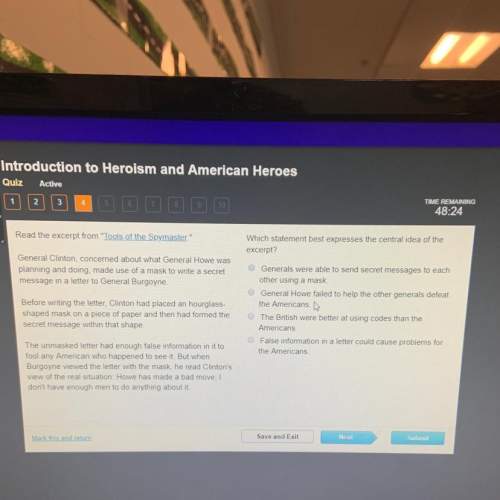Answer fast ! will give !
stories of useful inventions, excerpt
by s. e. forman<...

English, 29.01.2020 10:00 dogsarecrazy7868
Answer fast ! will give !
stories of useful inventions, excerpt
by s. e. forman
1911
the match
there never was a time when the world was without fire, but there was a time when men did not know how to kindle fire; and after they learned how to kindle one, it was a long, long time before they learned how to kindle one easily. in these days we can kindle a fire without any trouble, because we can easily get a match; but we must remember that the match is one of the most wonderful things in the world, and that it took men thousands of years to learn how to make one. let us learn the history of this familiar little object, the match.
fire was first given to man by nature itself. when a forest is set on fire by cinders from a neighboring volcano, or when a tree is set ablaze by a thunderbolt, we may say that nature strikes a match. in the early history of the world, nature had to kindle all the fires, for man by his own effort was unable to produce a spark. the first method, then, of getting fire for use was to light sticks of wood at a flame kindled by nature—by a volcano, perhaps, or by a stroke of lightning. these firebrands were carried to the home and used in kindling the fires there. the fire secured in this way was carefully guarded and was kept burning as long as possible. but the flame, however faithfully watched, would sometimes be extinguished. a sudden gust of wind or a sudden shower would put it out. then a new firebrand would have to be secured, and this often meant a long journey and a deal of trouble.
in 1827, john walker, a druggist in a small english town, tipped a splint with sulphur, chlorate of potash, and sulphid of antimony, and rubbed it on sandpaper, and it burst into flame. the druggist had discovered the first friction-chemical match, the kind we use to-day. it is called friction-chemical because it is made by mixing certain chemicals together and rubbing them. although walker's match did not require the bottle of acid, nevertheless it was not a good one. it could be lighted only by hard rubbing, and it sputtered and threw fire in all directions. in a few years, however, phosphorus was substituted on the tip for antimony, and the change worked wonders. the match could now be lighted with very little rubbing, and it was no longer necessary to have sandpaper upon which to rub it. it would ignite when rubbed on any dry surface, and there was no longer any sputtering. this was the phosphorus match, the match with which we are so familiar.
why does the author include details about the difficulty of getting fire before matches?
a.) by showing the importance of matches today
b.) by providing a history of how matches developed
c.) by showing how nature created fire
d.) by providing the history of john walker’s work

Answers: 3


Another question on English

English, 21.06.2019 22:00
Which statement expresses a theme that is found in both "escape" and "to live"? the search for self–awareness is often a difficult one. life's distractions can make it difficult to know yourself. a person often sees herself differently than others see her. being a part of two cultures can make it hard to know yourself.
Answers: 3

English, 22.06.2019 04:00
Which sentence has the correct subject-verb agreement? most storms occurs at this time of year due to weather patterns. most storms occur at this time of year due to weather patterns.
Answers: 2

English, 22.06.2019 08:30
What did polonius (ophelia’s dad) request from her? what is the outcome of the request? what does
Answers: 3

English, 22.06.2019 09:00
Write the usage of these given patterns of writing: •so. . . that. •had hardly . . . when
Answers: 1
You know the right answer?
Questions

Mathematics, 15.12.2020 08:50

English, 15.12.2020 08:50

English, 15.12.2020 08:50

History, 15.12.2020 08:50

Mathematics, 15.12.2020 08:50


Mathematics, 15.12.2020 08:50

Mathematics, 15.12.2020 08:50


Biology, 15.12.2020 08:50




Biology, 15.12.2020 08:50

Mathematics, 15.12.2020 08:50

English, 15.12.2020 08:50




Mathematics, 15.12.2020 08:50




